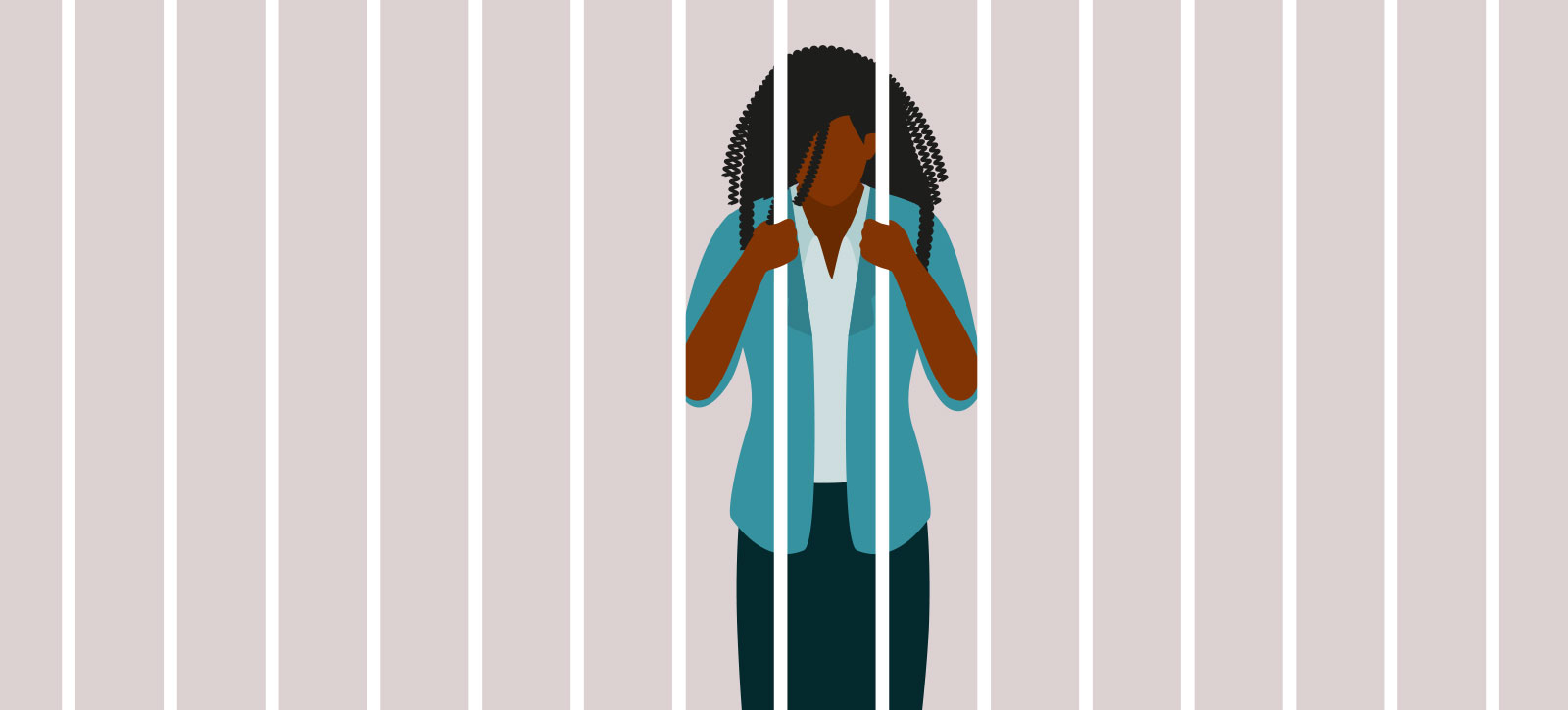
Hard time: Most women inmates receive short sentences that cost them their homes, jobs, and families
Warwick Business School has won a grant of £25,000 to use art to help improve how the criminal justice system engages with women.
Deborah Dean, Associate Professor of Industrial Relations, will use the money to work with women-only theatre company Clean Break, which was founded by female prisoners in 1979 and works with criminalised women.
The project will focus on influencing decision-making around sentencing and the treatment of women in prisons.
The majority of women in prison - 53 per cent - receive sentences under six months for petty crimes such as shoplifting, but this short time in jail has a profound and long-standing impact on their lives.
It often leads to women losing their job, home, and children. They are also at a much higher risk of self-harm while incarcerated.
The grant will be used to develop training in response to Dr Dean’s four-year study with Clean Break and colleagues from three other universities, which was funded by the Arts and Humanities Research Council.
Using art to educate judges, police, and prison staff
As well as 95 interviews and 53 observations, the research project toured a 12-minute play by Chloë Moss called Sweatbox. It was set inside a decommissioned prison van, and performed by three Clean Break artists to prison staff. Sweatbox was also turned into a film.
It also produced an exhibition by the project’s artist-in-residence Laura Dean, which was seen by the public, policymakers, Ministry of Justice civil servants, and magistrates.
The training for criminal justice professionals aims to give judiciary, police, and prison staff a better understanding of women’s specific experiences of the criminal justice system.
Dr Dean said: “The aim is to influence decision-making, practice and policy in relation to aspects of the criminal justice system, including sentencing and treatment within carceral settings.
“We will use our findings to co-develop an innovative training package for criminal justice system professionals, all of whom have choices in action at their own ‘entry point’ in a complex system. Their understanding rather than knowledge is key.
“In their different ways, visual art and theatre bypass our habitual opinions. They can provoke a more emotional, visceral response. That can be curiosity, sadness, anger, or amusement.
Longstanding problems in the prison system
“This opens up space for a different way of seeing something you thought you understood. Art should make you feel and make you think. And the criminal justice system desperately needs people to feel and think in new ways.”
The project coincides new Prime Minister Keir Starmer’s decision to appoint of James Timpson OBE as Minister of State for Prisons, Parole and Probation in July 2024.
Timpson, the CEO of key-cutting and shoe repair business Timpson Group, has long advocated for shorter sentences and the rehabilitation of prisoners, employing many ex-offenders in his shops.
Dr Dean believes it is an indication that “the longstanding problems with the criminal justice system are being taken seriously”.
She added: “This appointment - of a person with a track record of experienced understanding and commitment - is a sign that the UK Government is prepared for honest reflection and intervention.”
Dr Dean’s collaborative project recently held an art exhibition entitled UN:MUTE at WBS London at The Shard. As part of the event, she gave a talk to policymakers, private sector and third sector organisations on her findings and how Clean Break works.
Why isn't the justice system fit for purpose?
She said: “Their innovative methods give a unique insight and understanding of women’s treatment in the criminal justice system.
“We want to enhance this and take these art-inspired methods to policymakers who have the power to change a system that has been shown to be unfit for purpose for criminalised women.
“Clean Break’s organisational practices are rooted in a distinctive operational care ethic, which enable company objectives, including financial sustainability.
“We also found that their trauma-informed practice, underpinned by that internal care ethic, has significant epistemological impact for individuals and institutions.
“In the words of my colleague Caoimhe McAvinchey, that affects how we make judgements about what to believe and who to believe about things that are beyond our own lived experiences.
“This enables new understandings of what is misunderstood or forgotten within the criminal justice system and wider society.”




 X
X Facebook
Facebook LinkedIn
LinkedIn YouTube
YouTube Instagram
Instagram Tiktok
Tiktok